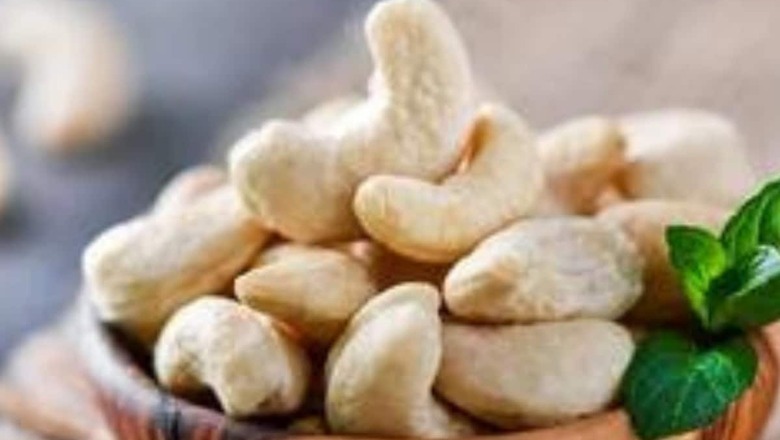
views
IIt is used in numerous vegetarian and chicken preparation in India, while in the West, it is eaten as a protein-rich snack. Native to South America (Brazil), cashews found their way to Africa and India as well. Cashews are sold raw, roasted, salted, and unroasted. Off late, this foot item is being used to make dairy alternatives like cashew milk, cashew-based cheese, and cashew-based sour cream as well.
Cashews are low in sugar and rich in fibre, fats, and plant protein. These are also good sources of copper, manganese, and magnesium– these nutrients are important for energy production, bone health, immunity, etc. Here are a few health benefits of the cashew nut
Heart Health
The unsaturated fatty acids in cashews help in decreasing LDL cholesterol and triglyceride levels which reduces the risk of cardiovascular disease, stroke, and heart attack.
Diabetes
In a study published by the National Library of Medicine, USA, it was found that people with type 2 diabetes who had 10% of their daily calories from cashews had comparatively lower insulin levels than those who ate no cashews at all.
Blood Pressure
Cashew nuts carry unsaturated fats and minerals like magnesium, potassium, and L-arginine in abundance. These nutrients help in the control of blood pressure by dilating the blood vessels
Collagen
Cashews have high copper content in them. Copper maintains the level of collagen and elastin in our bodies. It also helps in replacing damaged tissue or collagen.
Bone
Magnesium and copper in cashews are crucial for the bones as they help with the assimilation of calcium into the bone. Severe copper deficiency is associated with lower bone density and may increase the risk of osteoporosis.
Read all the Latest Lifestyle News and Breaking News here



















Comments
0 comment